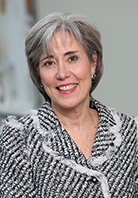By Rich Kirchen – Senior Reporter, Milwaukee Business Journal
Nov 29, 2018, 4:25pm CST Updated 11 minutes ago
The Medical College of Wisconsin is adding a partner for shaping Milwaukee into one of the healthiest and safest cities in the nation — the Greater Milwaukee Foundation — and narrowed the site search to an area between downtown and the north side Bronzeville neighborhood for the initiative’s facility that will include the community foundation's new offices.
Medical College and Greater Milwaukee Foundation leaders say they are poised to finalize the collaboration in the next two months. They will select by the end of January 2019 a location to house upwards of 150 Medical College employees, about 55 foundation employees and other organizations, MCW president Dr. John Raymond said in an interview Thursday with the Milwaukee Business Journal.
The two organizations have yet to determine whether they will build a new structure or lease an existing one. They are reviewing several finalist sites and have not made a final determination.
The partnership resulted from leaders of both organizations recognizing they separately were looking to address some of the same socio-economic and health disparities in the city. They believe working together they can accelerate investment in the central city and improve community health, workforce development, affordable housing, economic security, safety and education.
Raymond pointed out that the Medical College has sought partners since he disclosed the Flourishing Lives Initiative about one year ago. He initially targeted mid-2018 for a decision on the site location but the Greater Milwaukee Foundation’s involvement changed some of that calculus.
“We said we’d love to have a partner to bring credibility and expertise,” Raymond said.
The Medical College initiative aligns with the Greater Milwaukee Foundation’s priority of ensuring access to opportunity and a high quality of life for all the people throughout the Milwaukee community, said foundation president and CEO Ellen Gilligan.
“It’s about collaboration and collective impact,” she said. “These issues are not solved by one initiative, the government or philanthropy alone.”
The Greater Milwaukee Foundation is the largest in metro Milwaukee, based on grants paid, according to the most recent Milwaukee Business Journal list.
The Medical College initially set a site-selection area that ran from Interstate 94 on the south to Capitol Drive on the north, North 27th Street on the west and either North Water Street or North First Street on the east. The final target neighborhood is smaller and runs from West McKinley Avenue on the south to West North Avenue on the north and from North Dr. Martin Luther King Jr. Drive on the east to North Sixth Street on the west.
This area was selected because it exhibits some of the worst health care disparities in the city, said Medical College senior vice president Greg Wesley, who has spearheaded the initiative for the Wauwatosa-based private medical school.
The dollar amount of the real estate project has yet to be determined, Wesley said.
“It’s not just money we’re bringing to the table,” Wesley said. “It’s not just about money. It’s about people, expertise, knowledge.”
Likewise, the Greater Milwaukee Foundation has not designated a dollar amount for the project or its programs, Gilligan said.
The Greater Milwaukee Foundation’s offices are at Schlitz Park on the north end of downtown with a lease that expires in two years, Gilligan said. The organization occupies about 15,000 square feet and needs more space for its growth, she said.
“We are deeply committed to the community and deeply embedded,” Gilligan said. “We don’t want an arms-length relationship with the people we are serving.”
Despite the Medical College’s heavy involvement in providing physicians at hospitals and Froedtert & the Medical College clinics, the new central city facility will not include clinical care.
It might connect with the Froedtert & the Medical College clinic at North Sixth Street and West McKinley Avenue. Also, Medical College officials are looking to collaborate with federally qualified health centers that serve uninsured and under-insured patients, Raymond said.
The Medical College and Greater Milwaukee Foundation are seeking additional partners.
The ambitious 10-year goal of the new center housing the Flourishing Lives Initiative will be to both serve as an anchor for neighborhood improvement and a catalyst for improving the physical and economic well-being of the people who live there.
“At the end of the day, the quality of life needs to be improved meaningfully and measurably,” Raymond said.
Gilligan said the organizations will measure the success of the initiative over the long term.
“It’s very difficult to keep people’s attention on significant systemic change and that’s what we’re really talking about here,” she said. “We will have to articulate what we’re trying to achieve at a high level over the next decade or two decades. I don’t think it’s going to be in six-month increments.”




